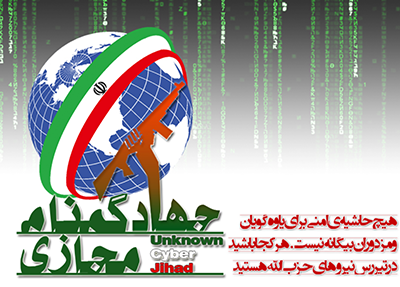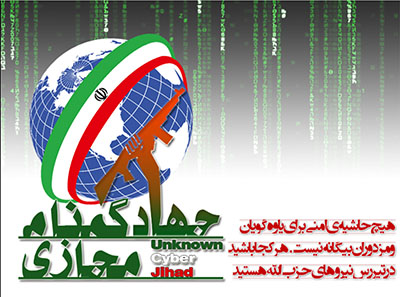New York, June 13, 2013–Iranian authorities have intensified their crackdown on the Internet, including on media outlets and journalists, in the days leading up to Friday’s presidential election, the Committee to Protect Journalists said today. Several opposition websites have reported being briefly hacked, while Google issued a statement on Wednesday that said tens of thousands of Gmail accounts of Iranian users had been targeted.
“The Internet is an indispensable tool for journalists, and these attacks demonstrate the contempt with which Iranian officials view independent information,” said CPJ Executive Director Joel Simon. “With an election on Friday, the Iranian people cannot make informed choices unless journalists are free to cover all perspectives.”

The BBC’s Persian service reported that at least five opposition websites–Khodnevis, Saham News, The Communist Party of Iran, the Voice of the Green Wave, and Defender of Human Rights–had been briefly hacked. The conservative news website Emad News also reported that RASA Iran Green Media, Rowzane, Centre for Supporters of Human Rights, and Ostanban had been hacked, and showed before-and-after pictures of the websites.
The sites, which are critical of the regime and conservative factions in the country, were inaccessible for several hours today. The websites for the Communist Party of Iran, the Voice of the Green Wave, and the Defender of Human Rights all remained down at the time of this publication.
The BBC reported that the sites had been hacked by a group calling itself “The Unknown Cyber Jihad.” The group claims it is affiliated with Hezbollah, and its logo includes Hezbollah’s infamous raised arm wielding an automatic rifle.
The websites were defaced with the message, “There is no safe margin for speakers of nonsense and enemy mercenaries. Wherever you are, you are within the shooting range of Hezbollah forces.”
Another group, the “Persian Flag Guards,” claimed credit for hacking Defenders of Human Rights. It is not clear if they are related to the Unknown Cyber Jihad.
Two other opposition news websites may have been hacked today. The website of Iran e-Sabz temporarily read “Shut up, dude” in Farsi on its home page, and the homepage of JARAS read “Site is updating” in Farsi. Both sites are now operating normally.
In a related episode, Google issued a statement on Wednesday that said tens of thousands of Iranian citizens’ Gmail accounts had been targeted in a series of phishing campaigns, which trick users into clicking a link to a fake Web page to deceive them into providing vital information. The Google statement said the company had “detected and disrupted multiple email-based phishing campaigns aimed at compromising the accounts” of Iranian users.
Google said the cyberattacks originated from within Iran and that their timing suggests they “are politically motivated in connection with the Iranian presidential election.” Targeted users were alerted by Google that their accounts “could be at risk of state-sponsored attacks.”
Iranian authorities have also continued their crackdown on local journalists and their families. Hesameddin Eslamloo, the culture and arts editor of Pasargad, a reformist weekly, was arrested on June 11, according to news reports. Eslamloo’s whereabouts or any charges against him were not disclosed.
The BBC reported that at least 15 family members of its employees had been summoned by Iranian authorities and told that they could lose their jobs and pensions and be barred from traveling abroad because of the journalists’ work. In a statement today, the broadcaster condemned the “unprecedented levels of intimidation” of its employees by the Iranian government.
The Iranian government has imposed particularly strong restrictions on the Internet in the months leading up to the election. CPJ reported yesterday that Internet speeds had slowed to a crawl within the country and that several news, social media, and video websites had been blocked, including CPJ’s website. CPJ found that the government has intensified its use of deep packet inspection, a process by which it scrutinizes data sent over domestic networks, and blocked the ports used by Virtual Private Networks, which are a tool used to circumvent government censors.
- For more information and analysis on Iran, see CPJ’s page here.
